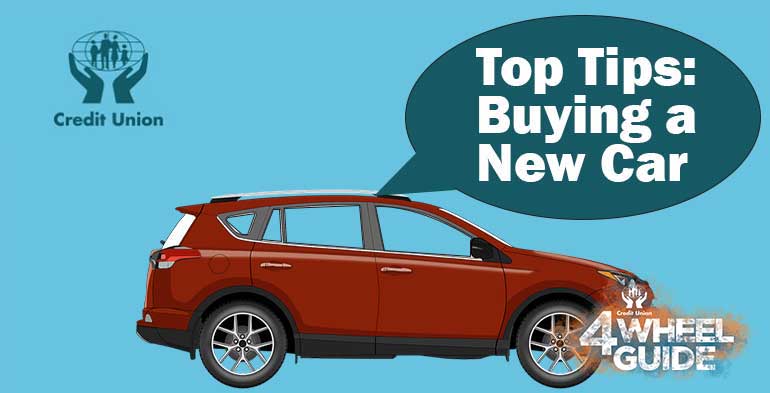20 August 2024
A Guide to Your Car Finance Options in Ireland in 2024
When it comes to purchasing a car, understanding your financing options will help you to make the best decision that aligns with your financial goals. That’s why in this guide, we explore the options available to you, ranging from used car finance to finding cheap car finance. Additionally, we'll delve into the world of car finance companies and where to find the best car finance deals.
So, whether you're on the lookout for a reliable used car or have your sights set on a brand-new set of wheels, we’re here to help.
So, lets get started!
Understanding Car Finance in Ireland
Referring to the various methods you can use to fund a vehicle purchase without necessarily needing to pay the full amount upfront, car finance allows you to potentially afford a more advanced model or a higher spec vehicle than you might manage with a cash purchase. Additionally, it can help you manage your budget effectively, keeping your cash flow stable while you enjoy the perks of your new motor. There are several car finance options available on the market, these include the Personal Contract Plan (PCP), Hire Purchase (HP), Personal Loans, and Leasing. The key lies in understanding which one aligns best with your personal and financial circumstances.
Alongside this, it's important to note too that different financing options may be better suited to the purchase of used cars or new cars. For instance, the PCP is commonly favored for new cars due to the guaranteed minimum future value offered by dealers. This makes it an attractive choice for those who prefer changing cars every few years as depreciation is already factored in. On the other hand, Hire Purchase (HP) and personal loans may be better suited for used cars, providing a straightforward approach to spreading the cost without considering further depreciation.
Remember, the best financing option will depend on your individual needs and financial circumstances.
Types of Car Finance Compared
Let's take a look at the advantages, disadvantages, suitability, and key considerations of some of the most common car finance options in Ireland.
Personal Contract Plan (PCP)
A Personal Contract Plan (PCP) is a type of car finance agreement where you pay an initial deposit followed by lower monthly payments for a fixed term.
Pros
- Lower Monthly Payments: PCP's monthly payments are usually lower than other finance options as they take into account the car's depreciation, not its full value.
- Flexibility at End of Term: At the end of the agreement, you have the flexibility to return the car, own it by making the final balloon payment, or use the car's residual value as a deposit on a new vehicle.
- Access to Newer Models: With lower monthly payments, PCP can make newer, more expensive models more accessible.
Cons
- Mileage Restrictions: PCP agreements include mileage limits. Exceeding these can incur additional costs.
- Vehicle Condition: The car must be returned in good condition, or you may face additional charges.
- Potential for Negative Equity: If the car's value falls more than expected, you could find yourself with negative equity at the end of the agreement.
Most suitable for?
PCP is often more suited for new cars because it accounts for the guaranteed future value, which is the estimated value of the car at the end of the agreement. This option can be attractive for those who like changing cars every few years.
Key Considerations
Before opting for a PCP agreement, it's crucial to consider all aspects. As highlighted by the Irish League of Credit Unions, traditional car loans can provide advantages such as no mileage restrictions, no balloon payment, and immediate ownership. While PCP can be a viable option, credit union car loans may offer lower interest rates and greater flexibility. They're simple, straightforward, and there are no hidden fees. Also, remember that the balloon payment at the end of a PCP can be quite substantial. Ensure you're financially prepared for this if you want to own the car at the end of the agreement.
Hire Purchase (HP)
Hire Purchase is a popular car financing option that allows you to hire a vehicle from a finance company until you make the final payment.
Pros
- Simple Structure: The simplicity of HP agreements makes them straightforward to understand and manage. Payments and terms are fixed, allowing for predictable budgeting.
- Flexible Terms: The repayment term is flexible, generally ranging from 12 to 60 months, enabling you to find a plan that suits your financial circumstances.
- Total Ownership: At the end of the agreement, the car is yours. There are no mileage restrictions or concerns about keeping the car in a sellable condition.
Cons
- Higher Monthly Payments: Compared to options like PCP, monthly payments tend to be higher as you're paying off the entire value of the car.
- Ownership Delay: You don't own the car until you've made your final payment, meaning the car could be repossessed if you fall behind on your payments.
- Potential for Negative Equity: If the car's value depreciates faster than your repayments, you could find yourself in negative equity.
Most suitable for?
Hire Purchase can be suitable for both new and used cars, but it's often a more attractive option for used cars. Because used cars typically depreciate at a slower rate than new ones, HP agreements can help spread the cost without the worry of rapid depreciation.
Key Considerations
When considering HP, it's crucial to compare different providers. Remember, you don't own the car until the final payment is made. Failing to keep up with the payments could result in repossession.
Car loan
A car loan is a type of personal loan used specifically for the purchase of a vehicle. You borrow a fixed amount of money from a financial institution and pay it back with interest over a set period.
Pros
- Immediate Ownership: Unlike some other forms of car finance, with a car loan, you own the vehicle outright as soon as you purchase it.
- No Mileage Limits: Since the car is yours, there are no mileage restrictions or wear and tear charges that come with leasing or PCP agreements.
- Flexible Terms and Amounts: Car loans usually offer flexible terms and loan amounts, allowing you to choose a loan that fits your budget.
Cons
- Usually Requires Good Credit*: Generally, to secure a car loan with a reasonable interest rate, a good credit score is necessary.
- (*However, at the credit union, we like to look at things differently and will assess each individual case – just because you have bad credit history does not necessarily mean you will be refused a loan outright.)
- Depreciation: As the car owner, you bear the risk of the car's depreciation.
- Interest Costs: As with any loan, you'll pay interest on the amount you borrow, which adds to the total cost of the car.
Most suitable for?
Car loans are suitable for both new and used cars and are particularly attractive to those who want immediate ownership of their vehicle without worrying about mileage limits or return conditions.
Key Considerations
When considering a car loan, it's crucial to shop around for the best interest rates and terms. Credit unions, such as Access Credit Union, offer competitive car loan options and pride themselves on providing a personal service, flexible terms, and fair and reasonable rates.
Access Credit Union offers various types of car loans, with applicants able to borrow up to €50,000 when applying for a new car loan. They also provide loan protection insurance at no extra cost and there are no penalties for early repayment of the loan.
Leasing / Personal Contract Hire
Leasing or Personal Contract Hire (PCH) is a long-term rental agreement. You pay an initial deposit, followed by a fixed monthly rental amount over a specified period.
Pros
- Lower Costs: Monthly payments for a lease are usually lower than those for a loan as you're only paying for the vehicle's depreciation during the lease term.
- No Depreciation Worries: Since you're not owning the car, you don't have to worry about its depreciation or selling it off.
- Regular Upgrades: Leasing allows you to drive a new car every few years, meaning you can enjoy the latest models and technologies without the hassle of resale.
Cons
- No Ownership: At the end of the lease, you must return the car. You won't own a vehicle at the end of the agreement.
- Mileage Limits: Leasing contracts come with mileage restrictions. If you exceed the allotted mileage, you'll have to pay extra charges.
- Wear and Tear Charges: If the vehicle is returned with damage beyond what's considered normal wear and tear, you may incur additional charges.
Most suitable for?
Leasing is generally more suitable for new cars and individuals who enjoy driving the latest models without the commitment of ownership. It's also an attractive option for those who use their vehicle for business purposes, as some or all of the lease cost may be tax-deductible.
Key Considerations
Before opting for a lease agreement, it's important to consider your driving habits and financial situation. Ensure you're comfortable with the mileage limit and potential wear and tear charges.
Remember, with a lease, you will not have a car to sell or trade in at the end of the agreement.
Credit card
Credit card financing involves using your credit card to purchase a car. Depending on your credit limit, you may be able to pay for the entire car or use it for the down payment on a more expensive vehicle.
Pros
- Rewards and Cashback: Many credit cards offer rewards, points, or cash back on purchases, which could equate to substantial savings.
- Protection: Credit card purchases often come with consumer protections such as the ability to dispute charges for services not received.
- Flexibility: Credit cards provide the flexibility to pay off the balance at your own pace as long as you make minimum monthly payments.
Cons
- Interest Rates: Credit cards often have higher interest rates than car loans, making it a more expensive financing option in the long run if you carry a balance.
- Credit Limit: The cost of the car may exceed your credit limit, restricting your buying options or forcing you to combine payment methods.
- Impact on Credit Score: High credit card balances can negatively impact your credit score.
Most suitable for?
Using a credit card to purchase a car is most suitable for low-cost used cars, given the credit limit constraints. It can also be a viable option for those who can pay off the balance quickly to avoid accruing significant interest.
Key Considerations
Before using a credit card to finance a car, it's essential to consider the interest rates and the potential impact on your credit score. While the rewards may be appealing, the high interest could offset these benefits if the balance isn't paid off promptly. Additionally, not all dealerships accept credit cards for vehicle purchases, or they may limit the amount you can charge.
Table of Types of Car Finance Compared
Car Finance Option | Personal Contract Plan (PCP) | Hire Purchase (HP) | Car Loan | Leasing / Personal Contract Hire | Credit Card |
Advantages | - Lower monthly payments - Flexibility at end of term - Access to newer model | - Simple structure - Flexible terms - Total ownership | - Immediate ownership - No mileage limits - Flexible terms | - Lower costs - No ownership - Regular upgrades | - Rewards and cashback - Protection - Flexibility |
Disadvantages | - Mileage restrictions - Vehicle condition - Potential for negative equity | - Higher monthly payments - Ownership delay - Potential for negative equity | - Usually requires good credit* - Depreciation risk - Interest costs | - No ownership - Mileage limits - Wear and tear charges | - Higher interest rates - Credit limit - Impact on credit score |
Most suitable for | New cars | Used cars | New and used cars | New cars | Low-cost used cars |
Key Considerations | Credit union car loans may offer lower interest rates and greater flexibility | Compare different providers | Shop around for the best interest rates and terms | Consider driving habits and financial situation | Consider interest rates and potential impact on credit score |
Verdict: Best Car Finance Options for New Cars
When it comes to financing a new car, a Personal Contract Plan (PCP) often proves to be the most attractive option. However, it's important to consider the mileage restrictions and the large final balloon payment if you choose to own the vehicle at the end of the term.
Alternatively, a car loan, such as those offered by Access Credit Union, is a great choice if you prefer to have outright ownership and don't wish to be bound by mileage restrictions or return conditions.
Verdict: Best Car Finance Options for Used Cars
Used cars typically come with lower price tags, opening up a variety of finance options. A car loan is often a practical choice for used cars. It allows for immediate ownership, doesn't restrict mileage, and offers flexibility in repayment terms. The competitive rates and terms offered by Access Credit Union, for example, make car loans an attractive option.
Navigating Your Route through Car Finance: Top Tips
These practical insights are designed to support you throughout the car finance process, helping you to make the best choice that aligns with your needs and goals:
Assess Your Financial Situation:
Start by comprehensively assessing your financial health, including income, expenses, and credit score. A clear understanding of your financial standing sets the foundation for determining how much you can comfortably borrow and repay.
Widen Your Lender Research:
Broaden your horizons by exploring different lenders available in Ireland. This includes banks, and credit unions like Access Credit Union. By comparing interest rates, loan terms, associated fees, and customer testimonials, you can identify reputable lenders that specialise in car finance.
Consider Interest Rates:
Interest rates can make a substantial difference to the overall cost of your car loan. Seek out lenders that offer competitive rates that reflect your creditworthiness. A reduced interest rate can yield significant savings throughout your loan period.
Dig into Loan Terms:
Pay close attention to the loan terms, especially the repayment period and monthly instalments. While longer loan terms might decrease your monthly payments, they may increase the total interest paid. Aim for a loan term that strikes a balance between manageable payments and minimal interest charges.
Review Fees and Charges:
Investigate any additional fees or charges accompanying your car finance option. This could include origination fees, processing fees, or penalties for early repayment. Make sure you're informed about the comprehensive cost structure of the loan.
Weigh Up Secured vs. Unsecured Loans:
Reflect on your comfort level with secured or unsecured car loans. Secured loans, which use your vehicle as collateral, often come with lower interest rates but risk repossession should you default. Conversely, unsecured loans may have higher interest rates but don't necessitate collateral.
Check Your Eligibility:
Familiarise yourself with the lender's eligibility criteria, including minimum income requirements, stable employment, and a good credit history. Ensuring you meet these prerequisites before applying can bolster your chances of loan approval.
Seek Pre-approval:
Consider obtaining pre-approval for a car loan from your chosen lender. This not only clarifies your budget but also boosts your bargaining power when buying a car. Moreover, it enables you to compare loan offers from different lenders.
Evaluate Additional Benefits:
Certain lenders may offer additional benefits, such as flexible repayment options, loan insurance, or the freedom to make extra payments penalty-free. Evaluate these additional features to see if they align with your financial needs.
Seek Professional Advice:
If you're unsure about selecting the most suitable car finance option, consider seeking advice from a financial advisor or car finance specialist.
Being informed and proactive can ensure your car finance experience is seamless and works with your financial goals.
Conclusion
An invaluable partner on your car finance journey is Access Credit Union. With deep-rooted community commitment, Access Credit Union prioritises personalised service and works diligently to understand and meet their customer’s needs. Their team of dedicated professionals is ready to guide you through your car financing journey, helping you make the right decisions for your financial future.
So, are you ready to turn the key on your car finance journey? To learn more about Access Credit Union Car Loans and embark on your car financing journey visit their website or contact the office directly on 021-21883.
Car Finance FAQs
How do you apply for a car loan?
You can apply for a car loan through a lender's website, via phone, or by visiting the lender's office in person. The process typically involves filling out an application form and providing necessary documentation. You can apply for a Access Credit Union car loan here.
What do you need for a car loan?
Requirements for a car loan may include proof of income, proof of residence, valid identification, credit history, and details about the car you intend to purchase.
Where is the best place to get a car loan?
The best place to get a car loan varies based on your individual needs and circumstances. Banks, credit unions like Access Credit Union are all options worth considering.
What are the best interest rates on car loans?
Interest rates on car loans vary widely based on factors such as your credit score, the loan term, and the lender.
How does a credit union car loan work?
A credit union car loan works similarly to a bank loan. You borrow a certain amount of money for your car purchase and repay it, with interest, over a specified term. However, credit unions, being not-for-profit institutions, often offer lower interest rates and more personalised service.
How easy is it to get approved for a car loan?
The ease of getting approved for a car loan depends on various factors including your credit score, income, employment stability, and the price of the car. Having a good credit score and stable income generally makes approval more likely.
What do credit unions look at when applying for a car loan?
Credit unions look at your credit history, income, employment stability, debt-to-income ratio, and the details of the car you're planning to purchase.
How big a car loan can I get?
The size of the car loan you can get depends on factors like your income, credit score, and the lender's policies. The loan amount should ideally be less than what you can afford to repay comfortably. With Access Credit Union, the maximum car loan amount is €50,000.
What is the maximum term for a car loan?
The maximum term for a car loan varies by lender, but it's typically around 5-7 years. Access Credit Union maximum term for a car loan is 10 years..
Can you pay off a car loan early?
Yes, most lenders allow you to pay off a car loan early. However, some may charge a prepayment penalty. It's best to check with your lender for specific policies. At Access Credit Union, our car loans don't have penalties for early repayment.
How do you get your first car loan?
For your first car loan, begin by determining how much you can afford, and researching potential lenders. Once you've chosen a lender, you can apply for the loan providing necessary documentation.







